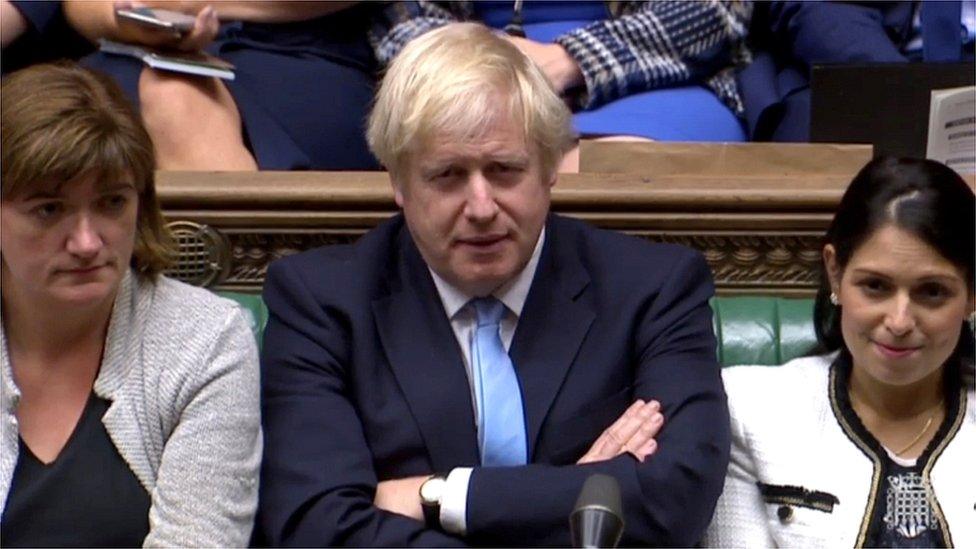What question would a fresh Brexit poll ask?
- Published
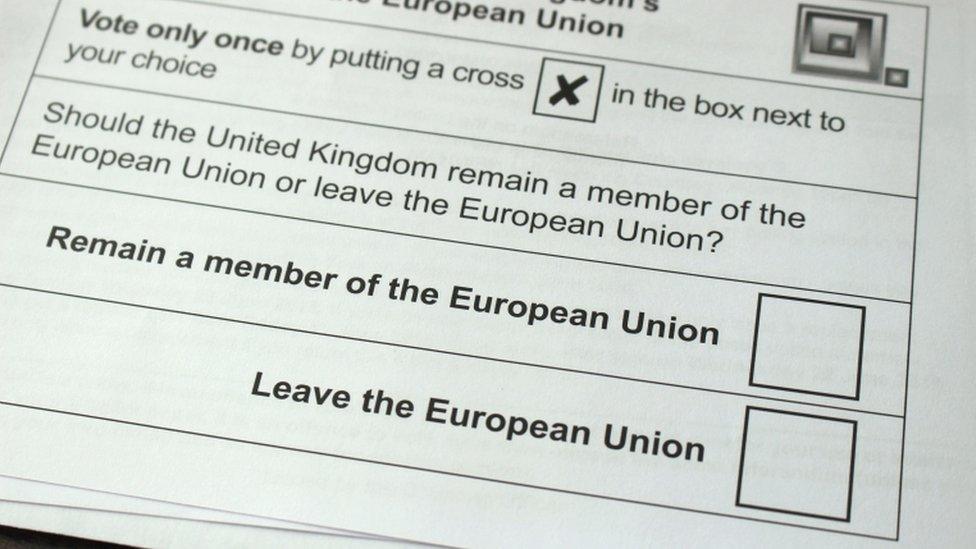
What might the question be if there were a second EU referendum?
Just when you thought Brexit couldn't get any more complicated, here's a further thought to add to the cumulative clanjamfrie.
Humour me and suppose that there might be a further referendum. On membership of the European Union, that is.
What would the question be?
Remember the question from 2016. It was: "Should the United Kingdom remain a member of the European Union or leave the European Union?"
It was felt this simple, binary approach best summed up the choice facing the people of the UK. Remain or Leave.
It was felt further that there was limited risk of either option predetermining the outcome or deterring voters. That was because folk with different standpoints were reasonably content to be described as Remainers or Leavers.
But what would we do now, should a referendum return? Could it once more be a binary choice? It would seem not, given that it has proved impossible thus far to implement that decision. Why try again when the previous effort resulted in failure and stasis?
Now, at this point, Leavers might protest that this is down to the antics of their opponents. Remainers might retort that it is owing to the inflexibility of MPs who want to Leave.
Either way, it would not seem particularly sensible simply to ask the same question again. How would that resolve the conundrum confronting the collective governance of the UK?
So would we be asked to choose between Remaining and some specified form of departure? Might that narrow the decision and provide a detailed mandate to MPs?
In theory, it might - and such an option might have proved feasible, had the choice narrowed at any time to a single version of Leave.
Breaking down a big week for Brexit
At this point, the specific Leave option actually on the table is still the withdrawal agreement negotiated by the former Prime Minister, Theresa May. Could that be posited against Remain in a binary referendum? Scarcely. The fundamental problem is that the May deal lacks support from the more zealous Leavers, including her successor, Boris Johnson.
Mr Johnson, indeed, has excoriated the May deal, suggesting it would reduce the UK to the condition of an EU vassal state, tied potentially forever within EU structures and law.
Now, a large part of that attack was rhetoric, designed to stimulate and mobilise opposition to the May plan. Did someone add "and to enhance his own chances of becoming PM?" I think they did.
But, again, disregard that. We are where we are. It would scarcely be credible or fair to pose the May Agreement versus Remain. That would not truly discern the views of Leavers, many of whom might be put off by being invited to vote for a package which they had comprehensively rubbished.
In passing, one might note that this perhaps reminds us of the fundamental problem of subjecting a complex issue to a binary referendum. But no matter. Again, we are where we are.
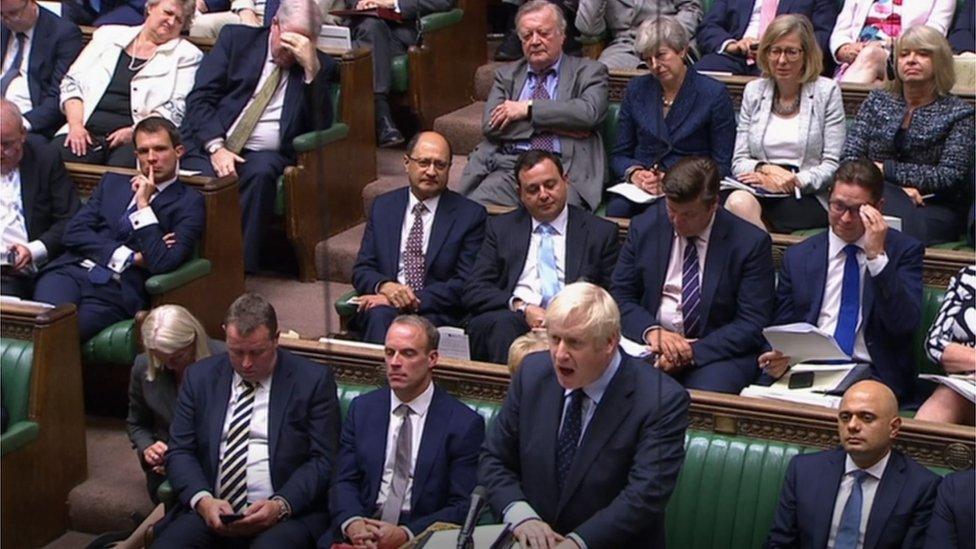
Theresa May can now watch her successor struggle with Brexit from the back benches
Perhaps, in that condition, a further binary referendum will be forced upon Mr Johnson by an energised opposition in the House of Commons which is pursuing contemporary objectives under the mantra of ancient privileges.
Matters are such in this regard that we now have the remarkable sight of the Conservative Father of the House and Churchill's grandson agitating against the leadership of the party they have served all their lives.
En passant, one might note that Winston Spencer Churchill was not himself a lifelong Tory. He spent fourteen years as the Liberal MP for the great and noble city of Dundee.
However, he had previously endorsed the Conservatives and returned to them after losing Dundee to a combination of a Socialist and a Prohibitionist.
As he noted himself: "Anyone can rat on a party, but it takes a certain amount of ingenuity to re-rat." Oh, for a modern dose of political ingenuity, of any variety.
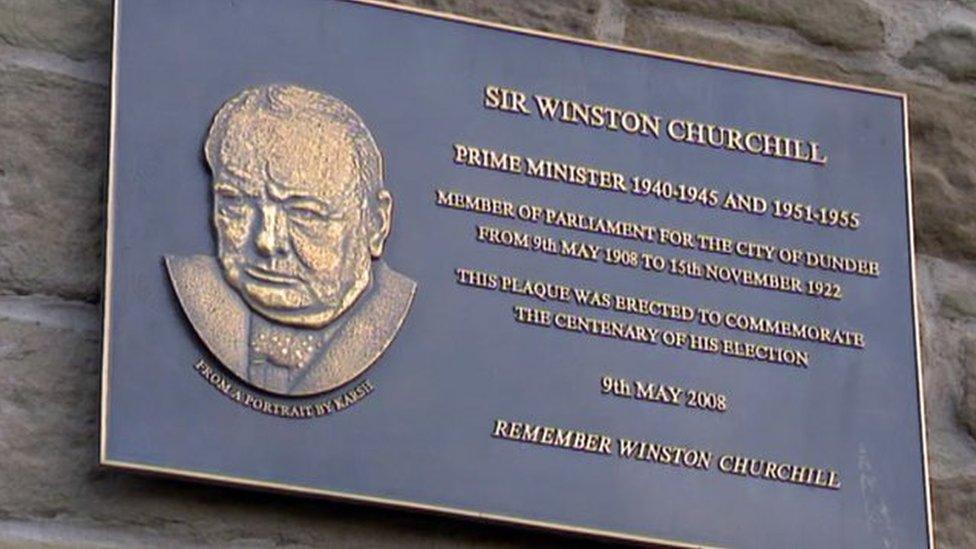
Winston Churchill was MP for Dundee for 14 years
But back to our putative re-run referendum. Boris Johnson, of course, does not wish such an outcome. He wants, as he reminds us repeatedly, to leave the EU on October the 31st, with or without a deal, do or die.
But his options are being explicitly and expertly narrowed. MPs have voted to oblige Mr Johnson to rule out No Deal and to seek a further extension to Britain's membership of the EU, in certain specified conditions.
There is much bold talk from Downing Street of finding ways to circumvent such an instruction. Perhaps, indeed, that will be possible.
But, once again, the volume of the rhetoric reminds me of Lear. "I will do such things - what they are yet, I know not, but they shall be the terrors of the earth!"
Coded warning
It is notable in this regard that former civil servants, of notable seniority, have been warning that the UK Government must not disregard the law.
I believe this is a coded, but fairly obvious, warning that the civil service would be reluctant to co-operate in actions which could be interpreted as a breach of statute and thus of their core function.
MPs have also prevented Mr Johnson from calling an election before the extension is secured. Once more, he will seek to get round this. Once again, his options appear to be limited.
Consider. If there is an extension, if there is then a general election, what would be the intent of those seeking to supplant Mr Johnson?
Some would want to revoke Article 50, to cancel Brexit. But that would not maintain the fragile unity that has emerged on the opposition benches.
In particular, it would be a step too far for Jeremy Corbyn whose vacillation on the topic of Brexit is driven, at least in part, by the thought that many Labour voters favoured leaving the European Union and might be less than pleased to see their wishes thwarted, without any consultation, by a Labour leader.
So, the likely option would be a further referendum, with Mr Corbyn and others insisting that Remain must be on the ballot paper. Which leaves us with the quandary of what the alternative proposition might be.
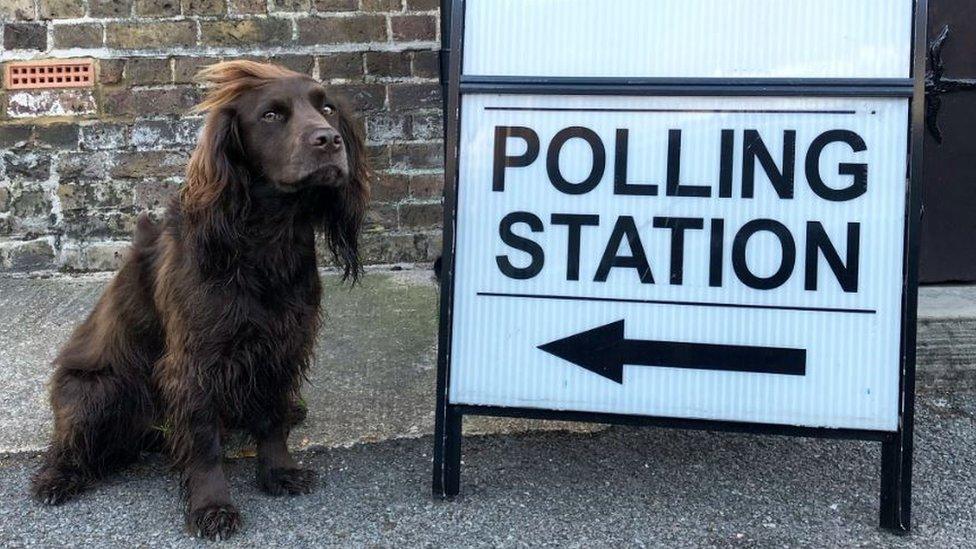
The only guaranteed winner in an election? Fans of dogs at polling stations
Alternatively, of course, Mr Johnson's new Tories might become sufficiently arduous in their pursuit of leaving the EU that they see off the challenge of the Brexit Party - and also Remainer rivals - to secure a clear majority and finally push through departure.
But can he be sure of that? He cannot. Can he be sure of anything? Same answer, and it applies to the wider populace.
In more than forty years of covering politics, I have never encountered such widespread anxiety and uncertainty. Folk may be for, against or indifferent re Brexit. But they are worried. About jobs, about the economy, about the future.
Which brings us back to that caveat in the opposition demands for an extension of the UK's membership. It does not apply if Mr Johnson achieves a renegotiated deal - and gets it endorsed by the Commons - or succeeds in persuading MPs to vote for no-deal.
The latter now seems unthinkable. Hence the renewed focus upon a deal. Hence, for example, the relative optimism voiced by Mr Johnson around talks with the Taoiseach.
Mr Johnson is adamant that he has always been seeking a deal. The departing Amber Rudd says there were no serious, continuing negotiations - only outline discussions.
Whatever, there is now an additional motivation upon Mr Johnson to reach an agreement which can pass the recalcitrant and reshaped House of Commons.
This may well not be possible. Technically, an agreement may be out of reach. The EU and Ireland may not be in a mood to be flexible, to help Mr Johnson. MPs may find that thwarting the elected government becomes habit-forming.
But, whatever the pre-existing position, you can bet that he will now try.
- Published9 September 2019
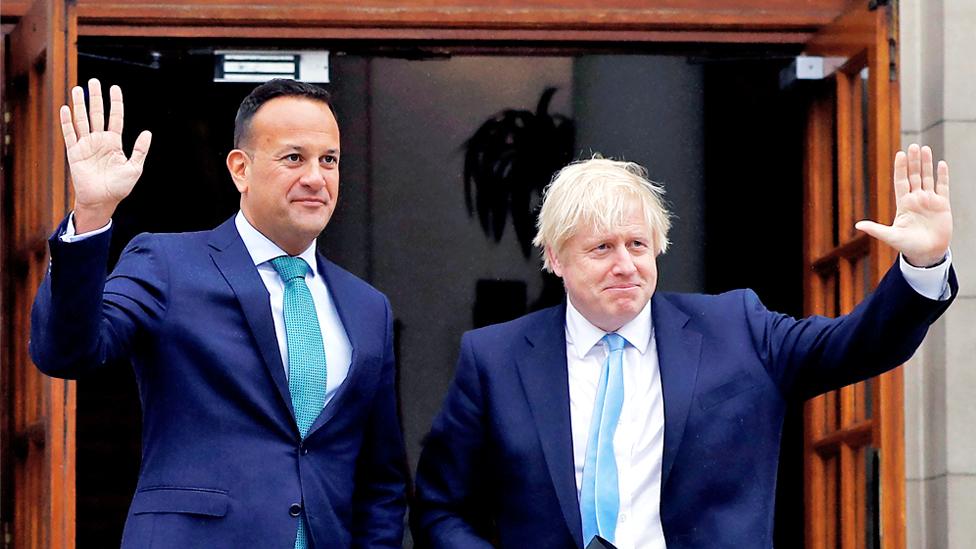
- Published10 September 2019
